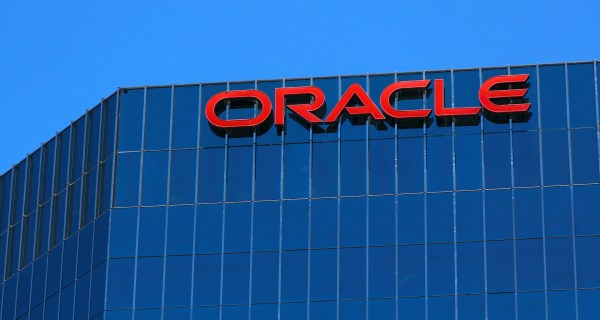2018 in review: The year of JEDI

When 2018 started, we knew very little about the Department of Defense’s landmark plan to acquire enterprisewide commercial cloud services — but as the year ends, the $10 billion, single-award cloud contract known as JEDI has become the biggest turf war in the federal IT contracting community, one that may forever change the government cloud landscape.
In March, after months of anticipation, the Pentagon debuted its acquisition strategy for the Joint Enterprise Defense Infrastructure cloud, which will stretch across the entire expanse of DOD, focused primarily on commercial platform-as-a-service (PaaS) and infrastructure-as-a-service (IaaS) offerings.
“We want to bend the Department of Defense around the commercial cloud,” Chris Lynch, director of the Defense Digital Service team leading the procurement, said during an industry day, meaning the department wants to adapt to embrace the existing strengths of the expansive commercial cloud and not limit that with excessive customization. “I can’t make that point enough. We want it here, and we want it out in those austere environments. We want to bring this to the warfighter.”
That was all good — it was the single award part that got (most) cloud contractors in an uproar.
In particular, IBM, Oracle and a few others right out of the gate expressed they weren’t happy with one award for DOD’s $10 billion foray into commercial cloud. “The Pentagon would never limit the Air Force to flying only cargo planes for every mission. Locking the entire U.S. military into a single, restrictive cloud environment would be equally flawed,” said Sam Gordy, general manager of IBM U.S. Federal.
Others — like Amazon Web Services, which is thought to be the best suited to win the JEDI contract — were more bullish on the single award.
“We believe for them at this point in time, a single cloud is a good thing — a single award with one cloud for now,” AWS’s Teresa Carlson said in an interview in June.
Meanwhile, within the Pentagon, there was the shuffling of exactly who was in charge of developing this behemoth contract. Former DOD Chief Management Officer Jay Gibson led the effort through its infancy. But ultimately, CIO Dana Deasy was put in charge of the acquisition in June. Gibson has since left the department.
Then came the protests, before the bidding process was even complete — first Oracle, followed by IBM. The Government Accountability Office denied Oracle’s protest, saying JEDI’s single-award approach “is consistent with applicable statutes (and regulations) because the agency reasonably determined that a single-award approach is in the government’s best interests for various reasons, including national security concerns, as the statute allows.” GAO then dismissed IBM’s because Oracle took its protest to the Court of Federal Claims — “the matter involved is currently pending before a court of competent jurisdiction,” GAO said.
Google, on the other hand, removed itself from the competition, citing ethical concerns. The company didn’t want its technology used for lethality. Similarly, after protests from its employees, Google refused work with the Air Force this year on Project Maven, which uses artificial intelligence to help analyze full-motion video surveillance, freeing up some of the workload for human analysts.
Microsoft employees too protested working with the DOD on JEDI for similar ethical concerns. However, the company ultimately bid on the contract.
That leaves us here, today. The battle for JEDI trudges along in the Court of Federal Claims. AWS has intervened on Oracle’s protest, mostly to protect its own name and proprietary information. And it’s still many months before the Pentagon will choose a winner.
Even then, the JEDI contract process is likely long from over. Whoever loses will likely protest, meaning any work on the contract will be delayed until that is sorted out. It could be fiscal 2020 before work under the contract kicks off.
For whoever wins, there are major stakes involved. Though DOD has said JEDI will account for only about 20 percent of its cloud spend, that’s still a big chunk for a single vendor. And DOD intends to move much of its application portfolio to the cloud through JEDI.
But most importantly, the contract, one of the largest cloud services contracts in the federal government to date, sets a precedent for incumbency. Whoever wins it will emerge as the biggest player in the federal IT space and continue to win work — particularly contracts that deal with classified or highly sensitive, mission-critical information — with other agencies ready to move to the cloud.
Indeed, 2018 was the year of JEDI, but really, we’ve only scratched the surface.






